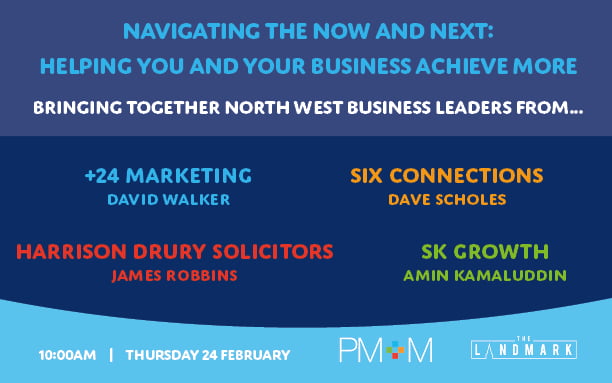Digital transformation is crucial for small to medium-sized enterprises (SMEs), and many are already embracing the transition. Research shows that 79% of SMEs view digitalisation as an essential step to ensure the future viability of their business. Moreover, a survey of 1,000 UK businesses revealed that digital capabilities can increase revenues by 4.4% and reduce costs by 4.3% – significant savings, especially for smaller businesses.
If you’re considering adopting digital tools or software but are unsure where to begin, our cloud accounting team can guide you through the process. In our latest blog, cloud accounting director, Rosie Cooper, explains how she helps clients navigate digital transformation.
Starting the digital transformation journey
When evaluating which aspects of the business could benefit most from digital transformation, we often start by identifying clients pain points. This may involve identifying tasks that take up the most time or resources, and exploring whether digital solutions could enhance efficiency.
Common time-consuming tasks, such as managing payments, tracking cash flow, or end-of-month reporting can often be automated, saving employees valuable time and reducing stress. Once the main issues are identified, our cloud experts provide tailored advice and recommendations. Typically, this involves selecting the right accounting software before considering additional software integrations.
Full system reviews
As awareness of digital transformation grows, or as businesses using digital tools reassess their needs, we’ve seen an increasing demand for full system reviews. This involves a deep dive into the business to understand its overall operations and identify areas for improvement. It’s not just about specific software but about understanding the business’s day-to-day activities and how they can be optimised.
A full system overhaul may not always be necessary – it could just be small changes, like the implementation of a digital tool which makes all the difference. There’s no one-size-fits-all solution – we recommend an app stack tailored to the business’s needs and help them develop a realistic implementation plan as part of a broader strategy.
Timing is everything
When businesses decide to update their systems, timing is key. Attempting a major overhaul during a busy period can lead to challenges – employees could view the change as an additional burden rather than a beneficial improvement.
Our consultation process considers the business on a holistic level – not just from a money-saving perspective. We ensure the new system meets the needs of all employees, not just the owners. For a new system to be successful, everyone needs to understand its value and have time to adapt to it.
Moving forward with conversion and implementation
Transitioning to a new system can be daunting, leading many businesses to delay the process and tolerate inefficiencies. However, working with a conversion and implementation team can help you choose the right system and customise it to your needs. Our team will work closely with you to ensure a seamless transition, from determining the necessary data transfer to establishing timelines and phased plans. Depending on your business size, the conversion process may take 1-7 days, or this could be longer over a phased period for larger businesses.
Training
Effective training is crucial when implementing a new system, and is often overlooked in the process. We provide a comprehensive training plan from the beginning of the process, ensuring your team fully utilises the system’s capabilities.
Expert app recommendations
With a growing number of apps available (over 1,000 in the Xero ecosystem alone), it can be difficult to determine which ones will be beneficial for your business.
Our team of specialists spend time evaluating and testing a wide range of apps and can confidently recommend those will work for you. Whether it’s streamlining data entry, approval processes, expense management, or automated reporting, we can help you enhance efficiency by implementing an app roadmap that aligns with your goals and objectives.
Get in touch
If you are concerned that the traditional accounting methods you currently use are inefficient and outdated, or your current software is causing issues which are creating inefficiencies for your business, speak to our team of cloud specialists who can work with you to recommend a solution. PM+M have helped many businesses of all sizes digitise their processes – and ultimately, revolutionise their finance function. Our cloud team have the expertise to recommend the perfect bespoke solution for your business, utilising the latest technological advance to help you work smarter.
Get in touch with the team by emailing cloudaccounting@pmm.co.uk or click the button below to arrange an initial discussion.




